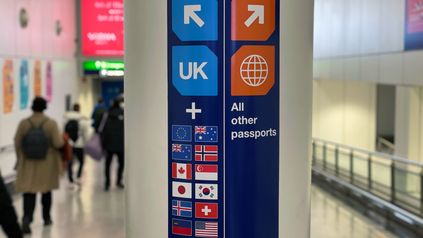The Home Office has dramatically increased its enforcement activity against UK employers. Recent data reveals two notable trends: record numbers of sponsor licences are being revoked, and employer civil penalties for illegal working have soared to unprecedented levels. For businesses reliant on international talent, these developments highlight the urgent need to get immigration compliance right — or risk serious financial, operational and reputational consequences.
A surge in sponsor licence revocations
Between July 2024 and June 2025, the Home Office revoked 1,948 sponsor licences. This represents more than double the number revoked in the previous 12 months, and a staggering increase compared with 261 in 2021–22 and 247 in 2022–23.
The surge is no accident. It reflects a deliberate policy shift. The government has made curbing illegal migration and abuse of the sponsorship system a top priority. Automation of sponsor licence renewals, introduced in April 2024, has freed up Home Office staff to focus on audits and enforcement. At the same time, enhanced data-sharing between government departments and law enforcement means that compliance breaches are now far more visible.
For sponsors, this creates a higher risk environment than ever before. We are seeing a notable rise in the number of corporate sponsors being audited by the Home Office — at levels not seen for many years, if ever.
Civil penalties for illegal working: tripled
Civil penalties for illegal working tell a similar story. According to Home Office enforcement data, the number of penalties issued has climbed sharply since 2020, with a significant spike in January 2024. The number of penalties issued tripled at the start of that year, and while Q2 2025 shows a small drop-off, the overall trajectory remains upward.
With fines now set at up to £60,000 per illegal worker, the financial exposure is potentially fatal for businesses.
The wider risks for employers
The risks extend well beyond civil penalties. Businesses may also face:
- Licence suspension or revocation, cutting off the ability to sponsor new and existing staff.
- Business closure orders and prosecution, in cases of serious breaches.
- Public disclosure of enforcement action, with details of sponsor licence revocations and illegal working penalties published on official registers — posing serious reputational risks for affected businesses.
In sectors heavily reliant on international staff — such as hospitality, healthcare, technology, and retail — the impact of losing a sponsor licence can be catastrophic. Without the ability to employ key personnel, businesses may be forced to halt operations or scale back growth plans.
Why compliance is now business critical
For many organisations, immigration compliance has historically been seen as a box-ticking exercise, often left in the hope that a dreaded Home Office audit never happens. That approach is no longer sustainable. With enforcement at record levels, the Home Office is clearly intent on making examples of non-compliant businesses.
The truth is that the sponsorship system is complex and often counter-intuitive. Job descriptions, salary thresholds, right-to-work checks and reporting duties are all potential pitfalls. For example, roles that are incorrectly classified against the immigration rules can result in visa refusals or even allegations of abuse of the system. Similarly, failure to conduct compliant right-to-work checks — even where the worker is ultimately found to have the right to work—can leave an employer exposed to penalties.
How Howard Kennedy can help
At Howard Kennedy, our immigration team specialises in guiding employers through this increasingly high-risk landscape. We act for clients across a wide range of sectors, from global corporates to scaling SMEs, and we understand the pressures businesses face.
Our support includes:
- Sponsor licence audits and health checks – identifying risks and implementing practical fixes.
- Training for HR and compliance teams – ensuring staff know how to conduct right-to-work checks and manage reporting obligations.
- Strategic workforce planning – advising on job classification, salary levels and structuring roles to meet immigration rules.
- Defence against penalties and revocations – representing businesses facing enforcement action.
- Ongoing advisory support – providing tailored guidance on day-to-day sponsor compliance, right-to-work checks and immigration strategy.
Conclusion
The numbers do not lie: sponsor licence revocations and illegal working penalties are rising at a pace never seen before. The Home Office has the tools, the data, and the political backing to continue this trend. Businesses cannot afford to take a reactive approach.
Howard Kennedy’s immigration team can help you navigate the evolving compliance landscape, maintain your sponsor licence, and safeguard your workforce. If you would like to discuss a sponsor licence audit, training, or tailored compliance support, please get in touch.


/Passle/60dc6875e5416a1130111d50/SearchServiceImages/2026-02-09-11-02-37-616-6989becda15d6a86d5d4e244.jpg)
/Passle/60dc6875e5416a1130111d50/MediaLibrary/Images/2025-11-04-13-37-39-766-690a01a368499c4238afd42c.jpg)
